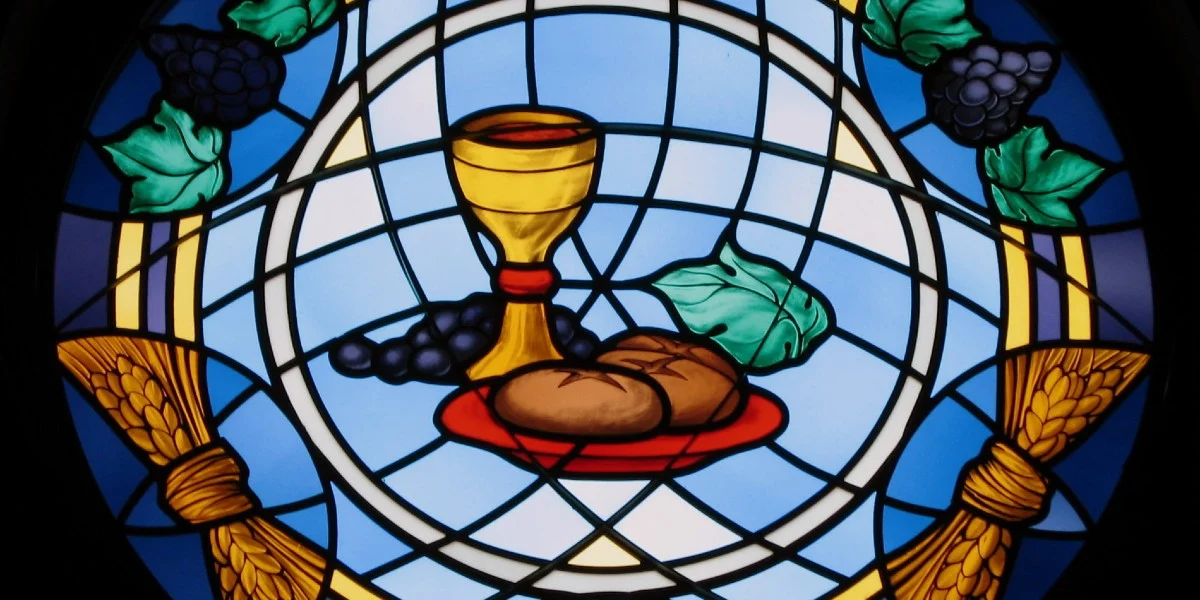Regina Caeli – Queen of Heaven, Rejoice!
The Regina Caeli, Latin for “Queen of Heaven,” is a hymn and prayer ...

A selection of quotes from St. Thomas Aquinas on the eucharist, the sacrament of Christ’s body and blood, and the sacrament of sacraments.
“Material food first changes into the one who eats it, and then, as a consequence, restores to him lost strength and increases his vitality. Spiritual food, on the other hand, changes the person who eats it into itself. Thus the effect proper to this Sacrament is the conversion of a man into Christ, so that he may no longer live, but Christ lives in him; consequently, it has the double effect of restoring the spiritual strength he had lost by his sins and defects, and of increasing the strength of his virtues.” St. Thomas, Commentary on Book IV of the Sentences, d.12, q.2, a.11
A few passages from St. Thomas’s greatest work, the Summa Theologiae, Part III on the Eucharist
Q. 74, Art 1. “Bread and wine are the proper matter of this sacrament. And the reasonableness of this is seen, first, in the use of this sacrament, which is eating: for, as water is used in the sacrament of Baptism for the purpose of spiritual cleansing, since bodily cleansing is commonly done with water; so bread and wine, wherewith men are commonly fed, are employed in this sacrament for the use of spiritual eating.”
Q. 75, Art 2, ad 3. “Christ’s body is not in this sacrament in the same way as a body is in a place, which by its dimensions is commensurate with the place; but in a special manner which is proper to this sacrament. Hence we say that Christ’s body is upon many altars, not as in different places, but sacramentally: and thereby we do not understand that Christ is there only as in a sign, although a sacrament is a kind of sign; but that Christ’s body is here after a fashion proper to this sacrament.”
Q. 75, Art. 4. “Yet this change is not like natural changes, but is entirely supernatural, and effected by God’s power alone. . . . Hence this is not a formal, but a substantial conversion: nor is it a kind of natural movement: but, with a name of its own, it can be called transubstantiation.”
Q. 75, Art. 5. “It is evident to sense that all the accidents of the bread and wine remain after the consecration. And this is reasonably done by Divine providence. First of all, because it is not customary, but horrible, for men to eat human flesh, and to drink blood. And therefore Christ’s flesh and blood are set before us to be partaken of under the species of those things which are the more commonly used by men, namely, bread and wine.”
Q. 76, Art. 1. (Whether the Whole Christ is Contained under This Sacrament?) Objection #2 says “Only the flesh and blood of Christ are contained in this sacrament. But there are many other parts of Christ’s body, for instance, the nerves, bones, and such like.” Thomas’ response: “It is absolutely necessary to confess according to Catholic faith that the entire Christ is in this sacrament.”
For more on the sacrament of the Eucharist see THE EUCHARIST LIBRARY of the Crossroads Initiative.
The Summa Theologiae is the great final but unfinished, multi-volume work of St. Thomas Aquinas who died in 1274. It’s third part or volume contains a treatise on all the sacraments. The quotes above are excerpts from the section on the Eucharist, the sacrament of Christ’s body and blood. Aquinas’ Commentary on the Sentences of Peter Lombard was written earlier in his life, but also treated of the sacrament of the Eucharist.
Banner/featured image by an unknown artist. Public domain.
Sr Marianne Lorraine Trouve
Posted at 15:32h, 07 AprilThank you for posting these beautiful quotes from St Thomas on the Eucharist. About his bio, while it is true that some attacked his work after his death, I wouldn’t say that his teaching remained under a cloud until the Council of Trent. Many other theologians came to Thomas’ defense, and in 1325 the bishop of Paris, Stephen Bourret, retracted the condemnation of his predecessor (from 1277) to the extent that it affected any teachings of St Thomas. Despite the critics, the majority of theologians recognized Thomas’ greatness and genius.
Marcellino D'Ambrosio
Posted at 15:21h, 08 AprilThanks so much, Sr. Marianne, for bringing up the Archbishop of Paris 1325 retractation of the condemnation of Thomas by one of his predecessors. While some philosophers and theologians in the 14th, 15th and early 16th centuries may have admired St. Thomas, he was certainly not understood and followed by the vast majority of theologians and philosophers. The nominalist theology and philosophy of William of Ockham held sway during most of this time. If Thomas’ teaching on grace, for example, had been known and widely appreciate in the early 16th century, things would probably have gone quite differently. If you have 20 minutes or so, watch my video lecture for the Catholic Distance University on the rise of Nominalism.